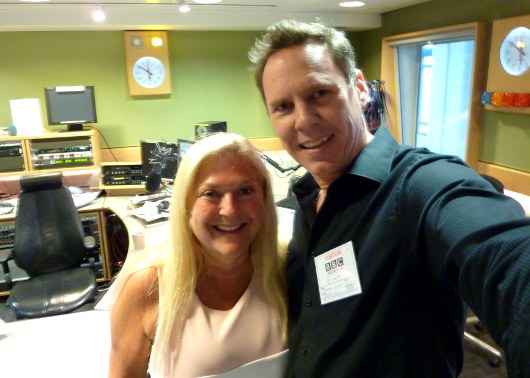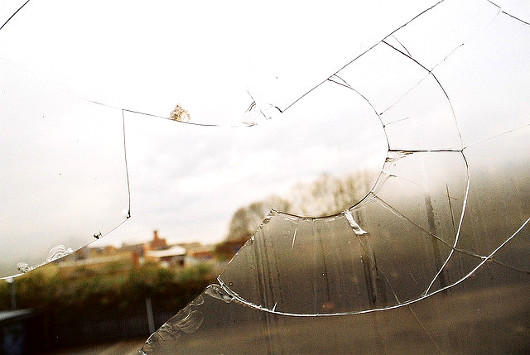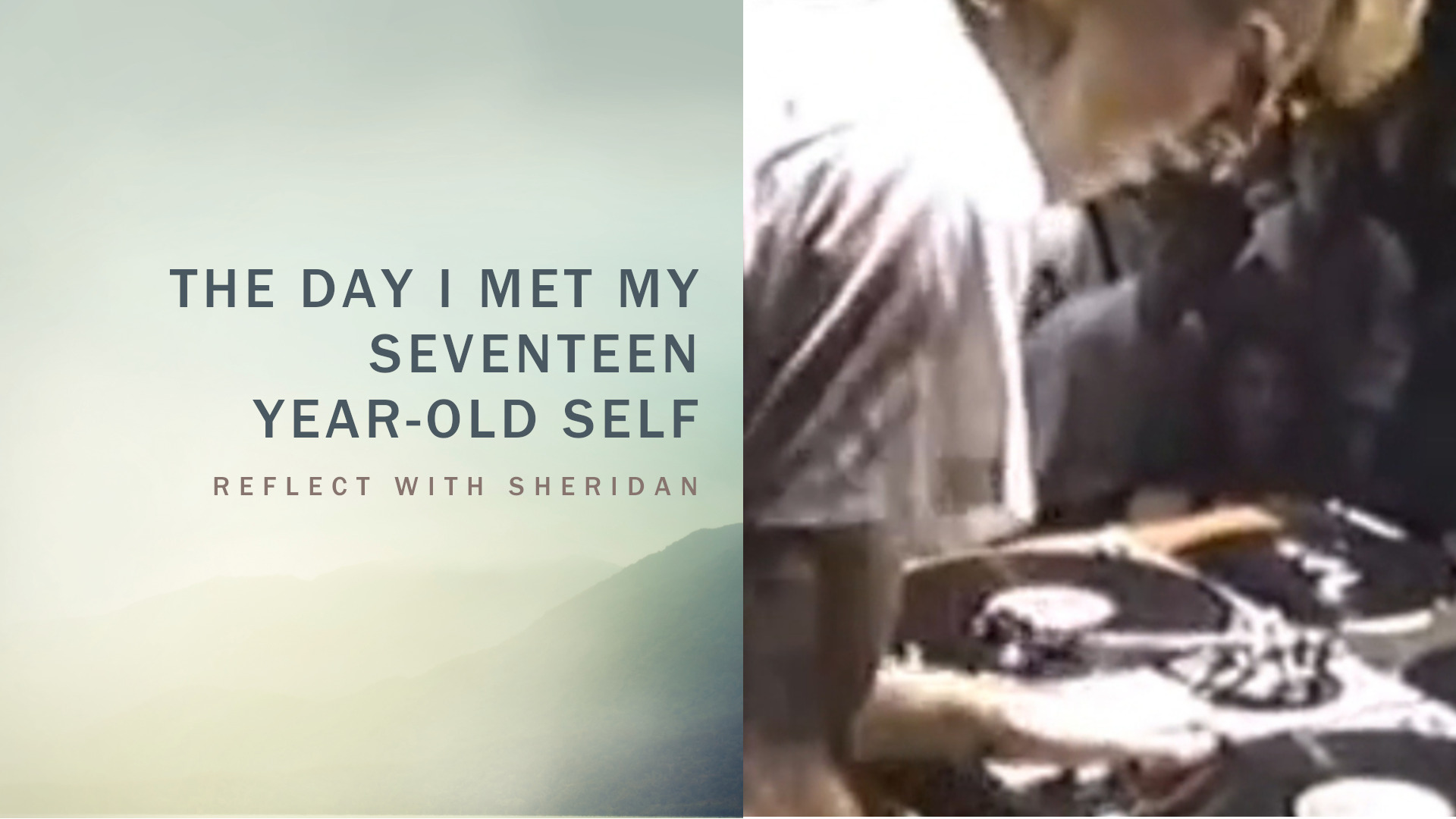Don’t Just Apologise, Make Amends (for BBC Radio 2)
Picture credit
Sometimes an apology is not enough. That’s the difficult lesson I learnt from my friend Mike some years ago. When I was asked to discuss the topic of ‘Making Amends’ on BBC Radio 2’s Pause for Thought segment this morning, I shared his story with presenter Vanessa Feltz.
Click To Listen
Podcast: Subscribe in iTunes | Right-click to download | Listen to Other Episodes
Pause for Thought July 31, 2014: Making Amends
At the age of 15, Mike, a friend of mine, fell in with the wrong crowd. One night he was invited by his new friends to join them on a ‘job’—breaking into a local store. To that point the closest Mike had come to crime was buying a stereo he knew was stolen. He was nervous about the invitation, but a break-in seemed just the thing needed to mess up his straight-laced image at school.
The target was a camping goods store. In the early hours of the morning they slipped down an alley beside the shop and prized open a window. Two boys slid inside, careful to avoid the laser beam that would trip the alarm, and started filling their rucksacks while Mike waited outside. Then one of them made a fatal mistake. He tripped the alarm. The boys inside scrambled for the window while the rest of them ran. Mike’s rucksack was left behind… with his name in it.
The police were on Mike’s doorstep at 7am. Mike made up some lie about being mugged by youths who stole his bag—‘No officer, I know nothing about a robbery’. The case was closed six months later.
One of the times you see Jesus get really excited in the Gospels is when a thief named Zacchaeus pays back all the money he’s stolen from people. When Mike became a Christian some years later, that burglary weighed heavy on his conscience. He knew an apology was needed, but that wasn’t enough. While he’d never profited from the robbery, or even touched the shop, he’d been involved in an act that brought misery to someone. Like Zacchaeus, he needed to make amends. He dreaded the possible ramifications.
Mike drove to the camping store. It had long since closed down. He asked around, made some calls, but never found the owners. He had more luck with the stolen stereo he’d bought. He worked out the store it had been taken from and tracked down the owner, who thanked Mike for his efforts but assured him restitution wasn’t required. It was so long ago, and he’d had insurance.
We can’t always fix our mistakes, and sometimes our victims don’t want us to. But Mike’s story has taught me an uncomfortable but important lesson:
Sometimes an apology is not enough.
We need to make amends.
***
Subscription Links
Subscribe to More Than This and never miss an episode.
![]() Subscribe on your iPad or smartphone
Subscribe on your iPad or smartphone
Your Feedback
Want to respond to this podcast? Leave a comment now or call me using the ‘Send Voicemail’ button. Please also rate and share this podcast on iTunes to help others discover it. Thanks!

With BBC Radio 2 early morning presenter Vanessa Feltz






Amanda Oram
I’m walking with a friend through her recovery from alcohol addiction: AA forms a big part of that for good reason. One of the 12 steps is about making amends – something that could prove costly for my friend.
So I guess my question is: “When we are very broken, and have also played a part in breaking others, how do we prioritise who we make amends to?
Sheridan Voysey
My original script mentioned AA’s Step 9 but had to be edited out for time. It is a challenging step. As the AA ‘Big Book’ puts it, ‘we may lose our position or reputation or face jail, but we are willing [to make amends].’ It also stresses this step is to be done ‘except when to do so would injure [the victim] or others.’ http://12step.org/the-12-steps/step-9.html
I’m not an expert at this but in my reading around I noticed:
a) that AA folks found making amends a hard step to anticipate the response to. Some folks didn’t want an apology; others responded warmly.
b) that some AA folks found starting with ‘easier’ cases a help so as to ease into the more difficult conversations ahead.
It must be a great help to have other AA folks to draw on as you help your friend through this step in her recovery.
Amanda Oram
The program feels ‘all or nothing’. I’ve been surprised by its intensity and, not being an addict, wonder if it’s sustainable for my friend.
I guess the concept of starting ‘easy’ is helpful to have in my head when she gets to that step, otherwise, she will end up broke.
Clare Alice
Wow i have a friend who went thru AA too and I agree she also experienced that sense – that AA was quite rigid and intense, ‘all or nothing’… She became a christian and began to apply grace on top of the aa principles which helped balance it out. She kept grace in mind when it got to that restitution step… this helped a lot. Did what she could and benefitted from it. But then allowed Jesus to carry the rest …that is what he freely offers.
Tony Voysey
I’ve met Mike. His actions since that time have proved his sincerity and his love for truth.
Clare Alice
Thanks Sheridan what a wonderful post. This has really prompted me regarding some things i am grappling with today and which I will definitely be applying to my situation 🙂
Your story blends the idea of grace, with the “works” of love and repentance that prove our faith. Both are beautiful and powerful and speak of God’s kingdom and goodness and love.
Thanks for making your words and your computer keyboard available to be used by God! 🙂
Sheridan Voysey
Thanks so much, Clare. Grace, love and repentance together sounds like we may be on the right track!
Jill Samera
There are plenty of people with issues too big to tackle, and it seems impossible to ‘make amends’. That’s where grace comes in. I had a friend went to Narcotics Anonymous for a while. What brings him to mind is an attempted half-armed robbery when on a hunt for drugs. All this happening whilst he was a Christian.
So I had introduced this guy to my God and my church and he went the full hog into God’s arms. A year or two later he was chastised by one of the church leaders for sexuality issues he occasionally acted on. The leader
gave him the hard line during a ‘heart to heart’ conversation. My friend
left the church after this – he felt like he couldn’t measure up to
the requirements of Christianity (sometimes perceived more rigid than NA
or AA!)
I was friends with both the leader and this guy. A few years
later, the leader left the church and left his wife (of a decade or so) to follow a ‘gay’
lifestyle. I never informed my friend of this, but in retrospect wish I
had have.
My friend died of a heroin overdose, never thinking he was
quite good enough compared to the rule bearers one sometimes finds in churches. But God’s grace covers him, and may God’s grace cover
the other guy too.
My heroin addict, armed robber friend never made amends for the bracelet I accused him of stealing from me. And I never made amends for repeatedly accusing him! But Jesus made amends for both of us!
Clare Alice
Wow thanks for sharing this and for helping to illustrate just how much people need grace, and how much grace heals.
So sad to hear bout your friend.
But good on you for having grace for all the people in this story… even the one who was meant to be strong, who failed your friend when he was weak.
Sometimes people who long for more “grace” in the church can have difficulty applying that sense of grace to the leaders that we find ourselves following , because their own example of grace can be less than perfect.
Goes to show we all need Jesus’ mercy equally.
jill
Absolutely! Thanks for your reply Clare Alice! I only just saw it! Hence the delayed response.
Yes Jesus’ grace and mercy is for all! Just this morning I was reflecting on how God’s mercy is for the criminal and the just. No distinction to the level of love God has for each. His righteousness extends to all – thankfully! And thankfully to church leaders, who obviously need it just as much as the people they minister to. Without it, without knowing God’s grace, their ministry would simply be not much more that a bunch of rules – too hard to follow for many.
Thanks again for your reply. May love and grace go with you x